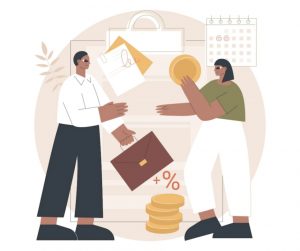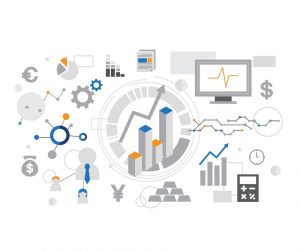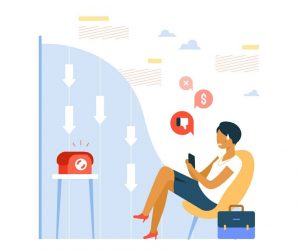Differences Between Demand And Want: What are wants? What do humans really want? What does demand encompass? Is there a relationship between demand and want? While these questions may seem philosophical, the field of economics studies these terms as it helps us explain consumer behaviour with regards to wants and in turn demand.
Demand and wants in people are strongly intertwined. Humans are the culmination of an unlimited number of desires and our wants are endless. The abundant distribution of natural resources by nature has led to an insatiable yearning for a variety of products, some of which may not even be necessary for survival (food, clothing, and shelter). Want is a longing or a desire to own things or services that satisfy. It is a complementing aspect of human life rather than being essential.

When we are financially able to meet our desires, those wants become demands. Accordingly, what consumers want can be seen through their demand for products and goods. This, in turn, drives the economy and helps business decisions that meet consumer needs. Now, although both terms are interconnected, there are distinctions between them. This article explores the differences between demand and want.

Recommended: Major tools for economic analysis
Meaning of wants
Wants are one step ahead of necessities. Wants are not necessary for human survival, although they are related to necessities. A want, in the simplest terms, is an item that a consumer desires but is not necessary for survival. Want is thus the exact opposite of need, which is necessary for our survival. Wants fluctuate often and are not constant. As individuals and their locations change over time, so do their wants.
Additionally, it is said that the form that human needs assume as they are moulded by society and individual personality is considered to be want. The primary distinction between needs and wants is the sophistication and effort required to satisfy the wants. Human wants include things like having wealth, the internet, a Mercedes-Benz, getting married, as well as other things. While a want seldom has the same fundamental requirements as a need, it nonetheless affects the individual who possesses it in the same way. Wants are what distinguish us all and propel our civilization forward.

Over time, wants may change. Consider the possibility that you once wished to own a large toy castle as a youngster. However, as you get older, your likes and preferences vary, which causes your wants to shift as well. Wants are unstable, intangible things that you could desire but do not actually require.
Our environment influences our wants in order to meet particular needs. Additionally, culture, socioeconomic status, and personality all influence what people want in different ways. Thus, the wants of people might vary based on their perceptions, environments, cultures, and societies.
Also see: Most beautiful countries in the world
Meaning of Demand
The consumer’s willingness and capacity to buy an item or service is known as demand in economics. It is the fundamental force that propels economic progress and growth. No firm would ever bother manufacturing anything without demand. Demand is the desire and financial capacity of customers to purchase something or service at a certain price and moment.

Want becomes demand when supported by purchasing power. So, consumers must be able to pay for what they want or need based on their disposable income budget. It is only then can we say there is demand. Demand, therefore, influences market expansion and economic growth.
Also see: Qualities of a good wife
Main Differences Between Want And Demand
1. Desire is the fundamental distinction between demand and want. Not every person wants the same things. Wants are always unique to each person. They are based on one’s socioeconomic standing. They are also the result of one’s upbringing, character, and preferences.

The limitless and ever-expanding wants of the contemporary man are a result of a protracted evolutionary process. Despite having a desire, a consumer might not be able to satisfy it. Because of this, those who can buy a desirable product are turning their wants into demands. To put it another way, a customer’s willingness and ability to purchase a need or a want indicates that there is a demand for that need or want. You could want an iPhone for a phone and a duplex for a home. Can you, on the other hand, really buy a duplex or an iPhone? If you have the means to purchase them, you can.
Hence, Want is the effective desire that is desire with ability and willingness whereas demand is the effective desire backed with the price of the commodity. Economists have said that demand is wants which is expressed and backed by a fixed price at a particular time.
Also see: Differences Between Adoption And Guardianship
2. Wants are limitless. Humans can never be totally satisfied, which causes them to have infinite wants. Some of our wants may be momentarily satiated, but they always reemerge. Other wants will emerge when fundamental needs and goals are met. In that case, gratifying one want causes another to arise. Nevertheless, wants are unaffected by the cost of the commodity. Regardless of our ability to pay for them or not, we have an insatiable yearning for things that are not required.
Contrarily, Demand is the quantity of a good or service that a consumer(s) is willing and able to buy at a range of prices. Demand is actually sensitive to the cost of goods and services. There is an inverse (negative) connection between the cost of a good and the quantity of it that customers are willing and able to buy. Thus, more affordable products are preferred by customers than more expensive ones. Due to the dependence of demand on pricing, businesses utilize sales principles to increase sales.
Also see: Best Industries/Sectors To Invest In 2023
3. A want is a desire. The things you wish to have are known as wants. To survive, however, they are not necessary. Everybody has their own unique set of wants or desires. Several of the desires that many individuals have include a large home, upscale food, designer clothing, a new automobile, a trip abroad, etc.
Economic wants are a person’s desires that may be met by purchasing an item, a service, or engaging in leisure activities. People purchase a diverse range of goods and services or opt to “consume” various amounts of leisure time because they have different economic wants.
Different income levels affect people’s ability to fulfil their economic wants. Naturally, those with greater incomes have more money to spend on products and services. Notwithstanding, everyone, regardless of income, must have wants. Contrarily, demand for commodities is influenced by people’s earnings. People’s demand for things will increase as their income levels do. Greater purchasing power results from higher income. Since a customer’s willingness and capacity to purchase a need or want converts a want into a demand. As a result, when people’s salaries rise, they can afford to buy more. This explains why an increase in income has a favourable impact on a good’s demand.
Also see: Advantages and Disadvantages of Social Media to Students
Conclusion
People frequently struggle to recognize the difference between demands and wants. Since the two words are relatively closely connected, this may be in part the reason. Although both appear to be straightforward ideas, having a grasp of their subtle differences could help you comprehend certain unusual market situations. Understanding the variations between wants and demands may be useful when using this information to promote items and services to clients.

Edeh Samuel Chukwuemeka, ACMC, is a lawyer and a certified mediator/conciliator in Nigeria. He is also a developer with knowledge in various programming languages. Samuel is determined to leverage his skills in technology, SEO, and legal practice to revolutionize the legal profession worldwide by creating web and mobile applications that simplify legal research. Sam is also passionate about educating and providing valuable information to people.